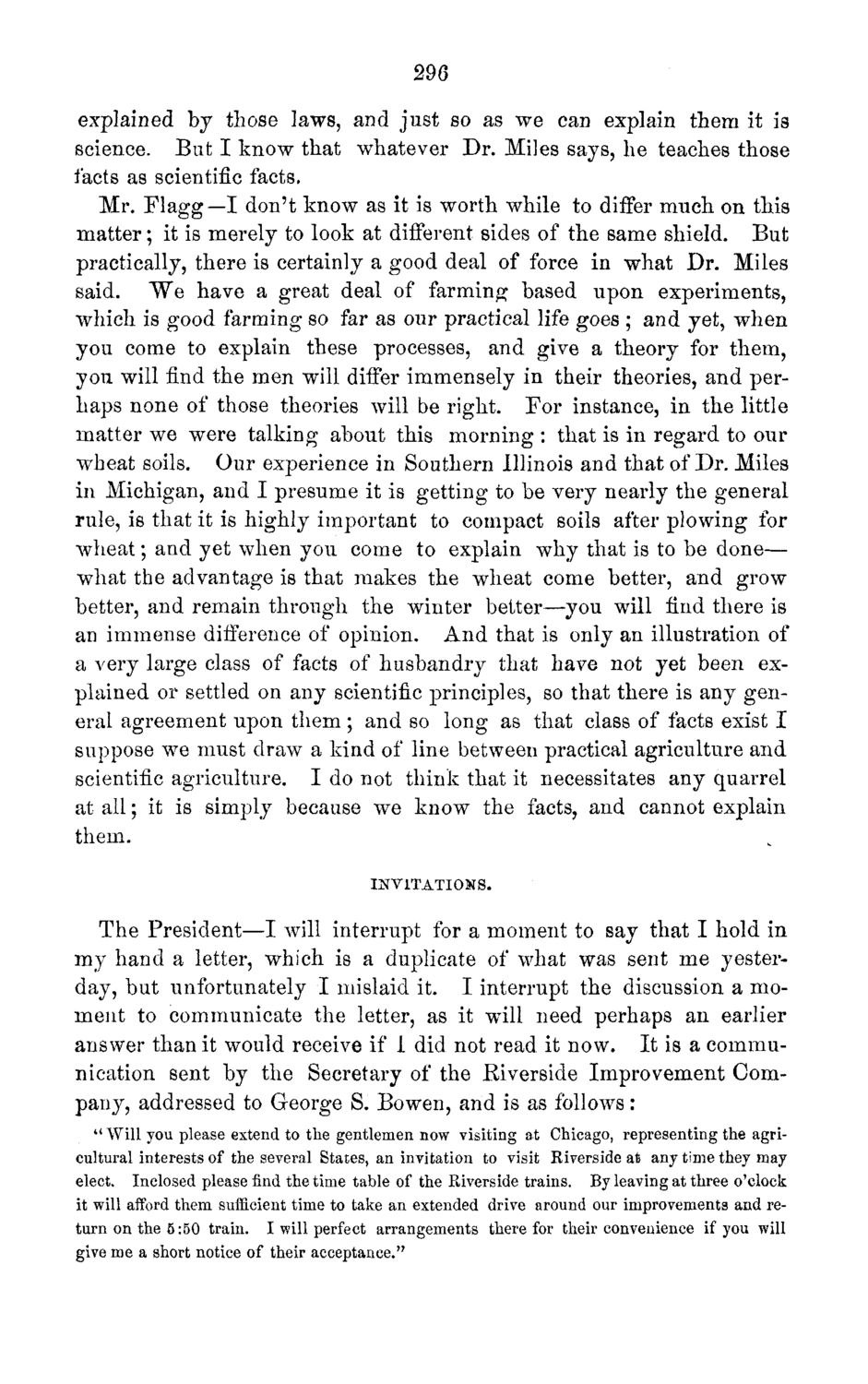| |
| |
Caption: Board of Trustees Minutes - 1871
This is a reduced-resolution page image for fast online browsing.

EXTRACTED TEXT FROM PAGE:
296 explained by those laws, and just so as we can explain them it is science. But I know that whatever Dr. Miles says, he teaches those facts as scientific facts. Mr. Flagg—I don't know as it is worth while to differ much on this matter; it is merely to look at different sides of the same shield. But practically, there is certainly a good deal of force in what Dr. Miles said. We have a great deal of farming based upon experiments, which is good farming so far as our practical life goes ; and yet, when you come to explain these processes, and give a theory for them, you will find the men will differ immensely in their theories, and perhaps none of those theories will be right. For instance, in the little matter we were talking about this morning : that is in regard to our wheat soils. Our experience in Southern Illinois and that of Dr. Miles in Michigan, and I presume it is getting to be very nearly the general rule, is that it is highly important to compact soils after plowing for wheat; and yet when you come to explain why that is to be done— what the advantage is that makes the wheat come better, and grow better, and remain through the winter better—you will find there is an immense difference of opinion. And that is only an illustration of a very large class of facts of husbandry that have not yet been explained or settled on any scientific principles, so that there is any general agreement upon them; and so long as that class of facts exist I suppose we must draw a kind of line between practical agriculture and scientific agriculture. I do not think that it necessitates any quarrel at all; it is simply because we know the facts, and cannot explain them. INVITATIONS. The President—I will interrupt for a moment to say that I hold in my hand a letter, which is a duplicate of what was sent me yesterday, but unfortunately I mislaid it. I interrupt the discussion a moment to communicate the letter, as it will need perhaps an earlier answer than it would receive if 1 did not read it now. It is a communication sent by the Secretary of the Riverside Improvement Company, addressed to George S. Bowen, and is as follows: "Will you please extend to the gentlemen now visiting at Chicago, representing the agricultural interests of the several States, an invitation to visit Riverside at any time they may elect. Inclosed please find the time table of the Riverside trains. By leaving at three o'clock it will afford them sufficient time to take an extended drive around our improvements and return on the 5:50 train. I will perfect arrangements there for their convenience if you will give me a short notice of their acceptance."
| |